Taryn Simon
Contraband
2nd April – 1st June 2019
Anna Schwartz Gallery
Contraband comprises 1,075 photographs taken at both the U.S. Customs and Border Protection Federal Inspection Site and the U.S. Postal Service International Mail Facility, both located at John F. Kennedy International Airport in New York, and functioning as liminal spaces between the U.S. and other nations. For one full working week, 24 hours per day, Simon remained on site, photographing items detained or seized from passengers and express mail entering the U.S. from abroad.
The resulting project catalogues the expansive inventory of objects, presenting the collected items alphabetically and underscoring random patterns and connections among them. Using a forensic photographic procedure to document the seized items, and a presentation strategy drawing upon scientific and museological methodologies, Simon removes the confiscated items from all context, and instead positions them as symbols of illicit desire, illegal trade, and government control. Each item is labelled according to official classifications including ‘abandoned’, ‘illegal’, ‘unlicensed’, and ‘counterfeit’. Simon’s inventory includes pirated movies; counterfeit cashier’s checks; fat, sausages, deer blood, and duck tongue; counterfeit Louis Vuitton handbags and Patek Philippe watches; counterfeit Xanax and erectile dysfunction medication; GBL (a component of date rape drug); and a dead bird intended for use in witchcraft rituals. This glut of repetitive goods yields a view of the social whole, characterised by its reflex to produce, accumulate, consume, and transport without limits. Simon’s photographs thus capture both the strict logistical control of the airport, which adheres to legal restrictions on certain categories of foreign objects, as well as the chaos and disorder that remain despite this control – scrutinising the bizarre, the forgotten and the banal with a cold, administrative gaze.
With debates around border security and trade agreements occupying a central role in current political discourse, Contraband underscores the routine detention and denial of the passage of objects and people, as well as the deliberate obscuring of the innocent or unknown in a bureaucratic fog. Tapping into the diffuse anxiety of the present moment, wherein mundane objects like bananas, bulbs and nesting dolls can be seen as threats, the seized objects in Contraband function as surrogate portraits of their owners, depersonalised and processed by ‘the machine’.
Contraband is accompanied by a fully illustrated catalogue – now in its second edition – with a text by Hans Ulrich Obrist, Artistic Director, Serpentine Galleries, London.
Images
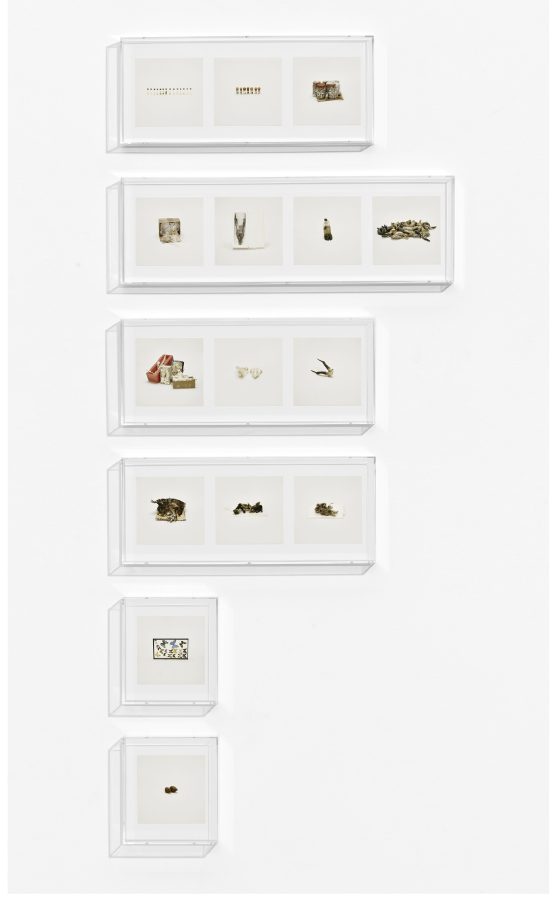
Taryn Simon
Animal Corpses (Prohibited), Animal Parts (Prohibited), Animal Skeletons (Prohibited), Butterflies (Prohibited), Snails (Prohibited), 2010
15 archival inkjet prints in 6 Plexiglas boxes
Box 1: 23.5 x 57.8 x 6.4 cm; Box 2: 23.5 x 76.2 x 6.4 cm; Box 3, 4: 23.5 x 57.8 x 6.4 cm; Box 5, 6: 23.5 x 21 x 6.4 cm
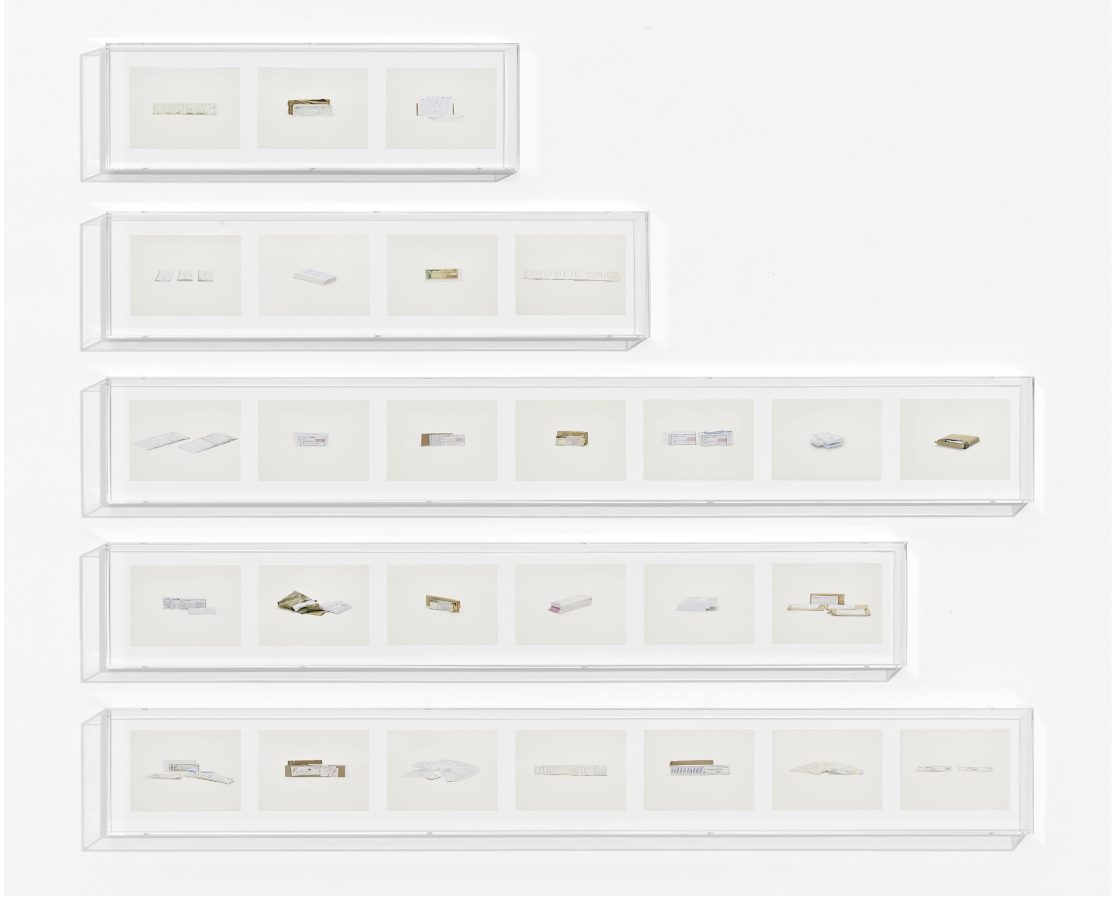
Taryn Simon
Cashier’s Checks (Counterfeit), Checks (Counterfeit), Money Orders (Counterfeit), Traveler’s Cheques (Counterfeit), 2010
27 archival inkjet prints in 5 Plexiglas boxes
Box 1: 23.5 x 57.8 cm; Box 2: 23.5 x 76.2 cm; Box 3, 5: 23.5 x 131.4 cm; Box 4: 23.5 x 113 cm
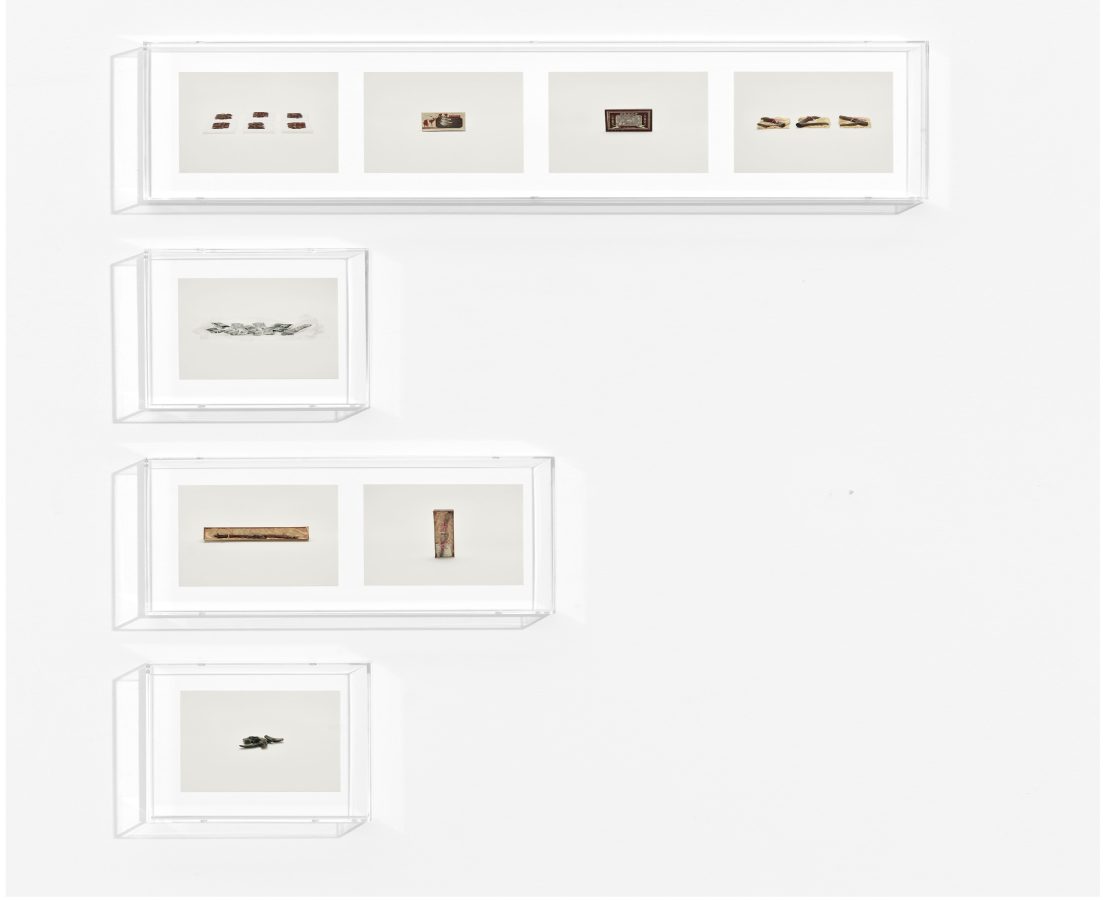
Taryn Simon
Deer Antlers (Prohibited), Deer Penis (Prohibited), Deer Tongue (Prohibited), 2010
8 archival inkjet prints in 4 Plexiglas boxes
Box 1: 23.5 x 76.2 x 6.4 cm; Box 2: 23.5 x 20.95 x 6.4 cm; Box 3: 23.5 x 39.4 x 6.4 cm; Box 4: 23.5 x 20.95 x 6.4 cm
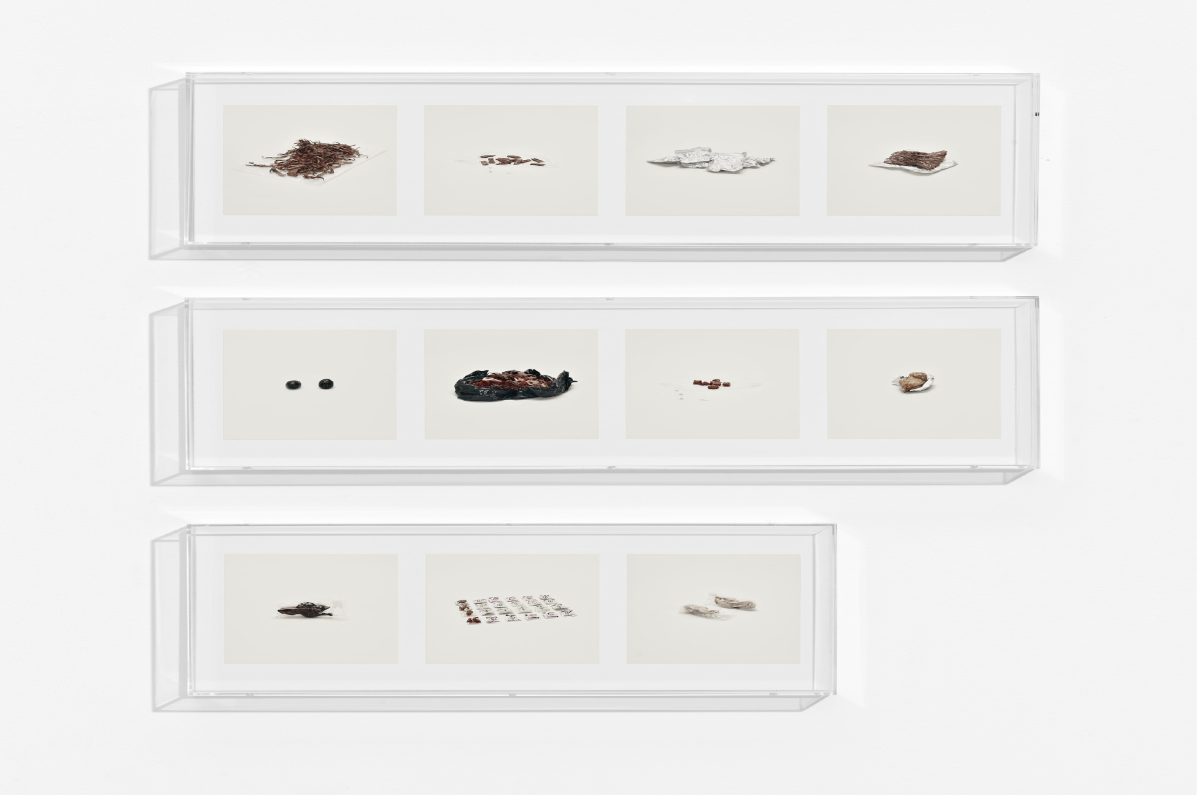
Taryn Simon
Duck Tongue (Prohibited), Duck Misc. (Prohibited), 2010
11 archival inkjet prints in 3 Plexiglas boxes
Box 1, 2: 23.5 x 76.2 x 6.4 cm; Box 3: 23.5 x 57.8 x 6.4 cm
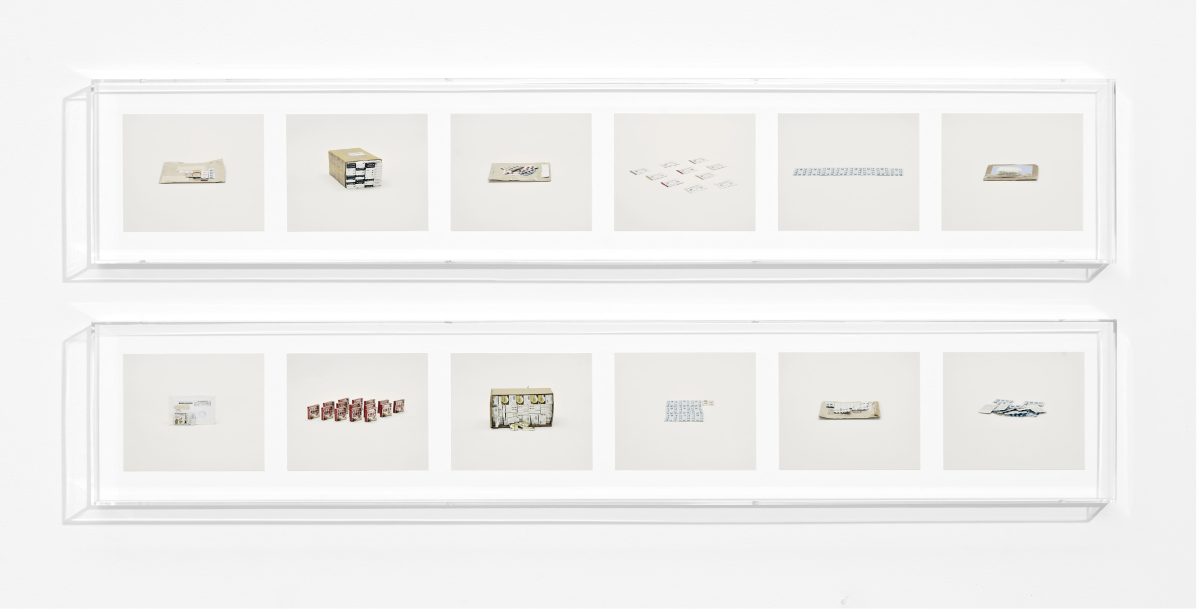
Taryn Simon
Erectile Disfunction Medication/Cialis & Viagra (Counterfeit), 2010
12 archival inkjet prints in 2 Plexiglas boxes
Box 1, 2: 23.5 x 113 x 6.4 cm
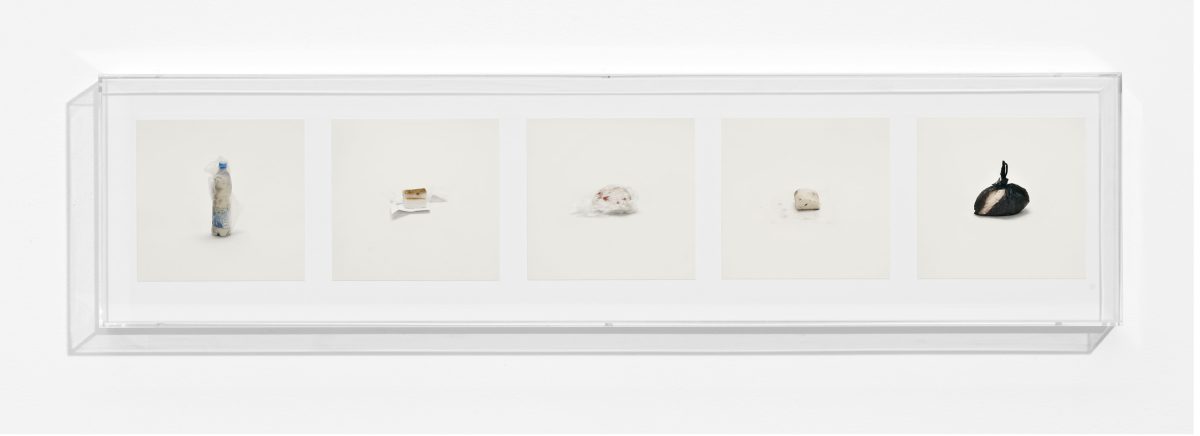
Taryn Simon
Fat (Prohibited), 2010
5 archival inkjet prints in 1 Plexiglas box
23.5 x 94.6 x 6.4 cm

Taryn Simon
Footwear (Nike, Counterfeit), 2010
6 archival inkjet prints in 1 Plexiglas box
23.5 x 113 x 6.4 cm
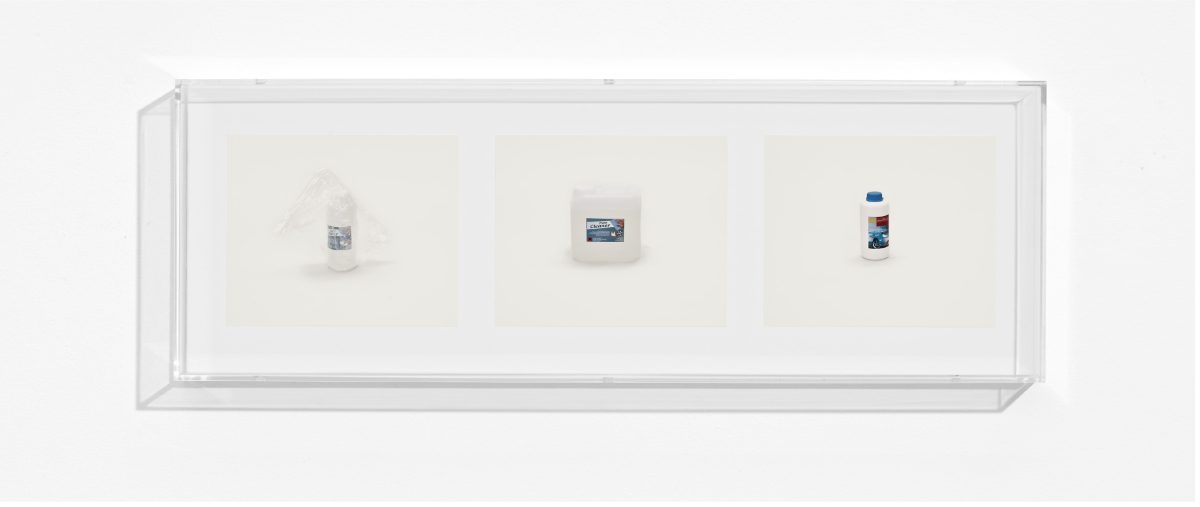
Taryn Simon
GBL, Component of Date Rape Drug (Illegal), 2010
3 archival inkjet prints in 1 Plexiglas box
23.5 x 57.8 x 6.4 cm
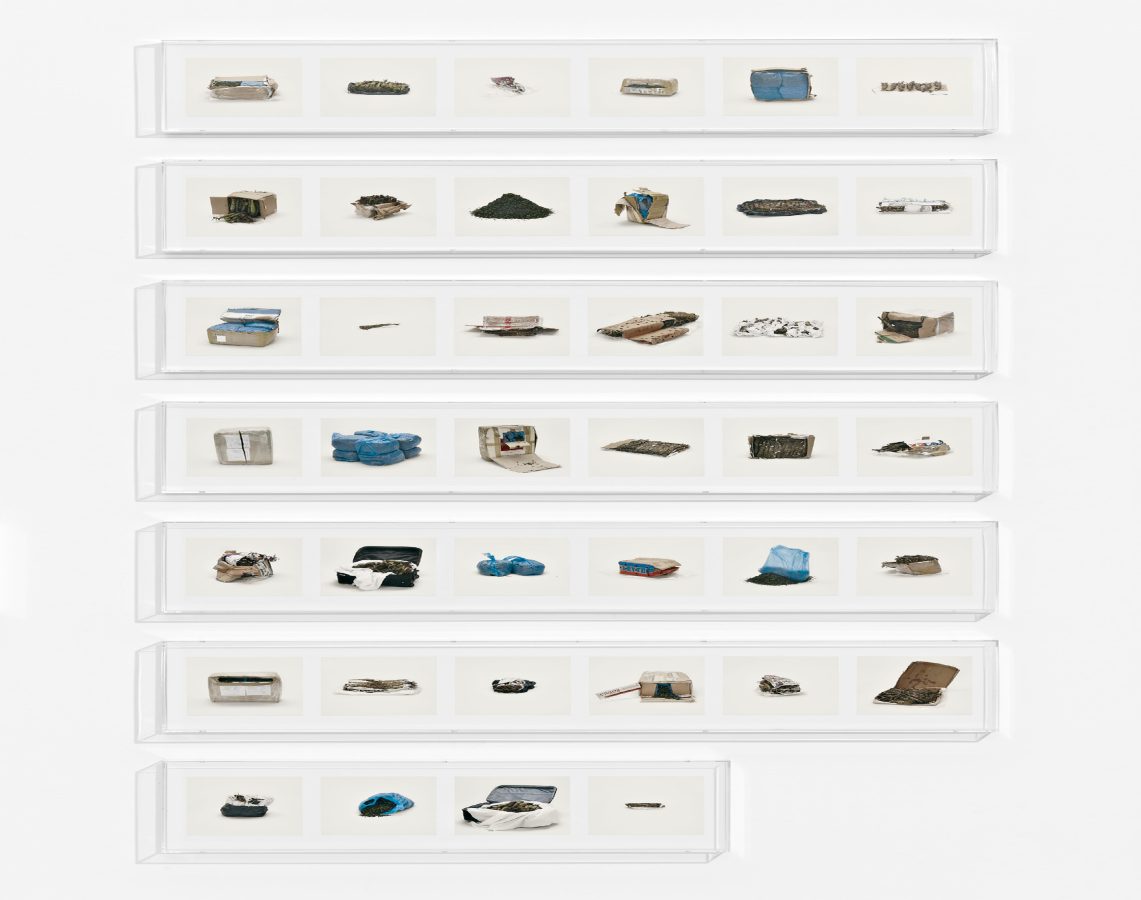
Taryn Simon
Khat (Illegal), 2010
40 archival inkjet prints in 7 Plexiglas boxes
Box 1, 2, 3, 4, 5, 6: 23.5 x 113 x 6.4 cm; Box 7: 23.5 x 76.2 x 6.4 cm
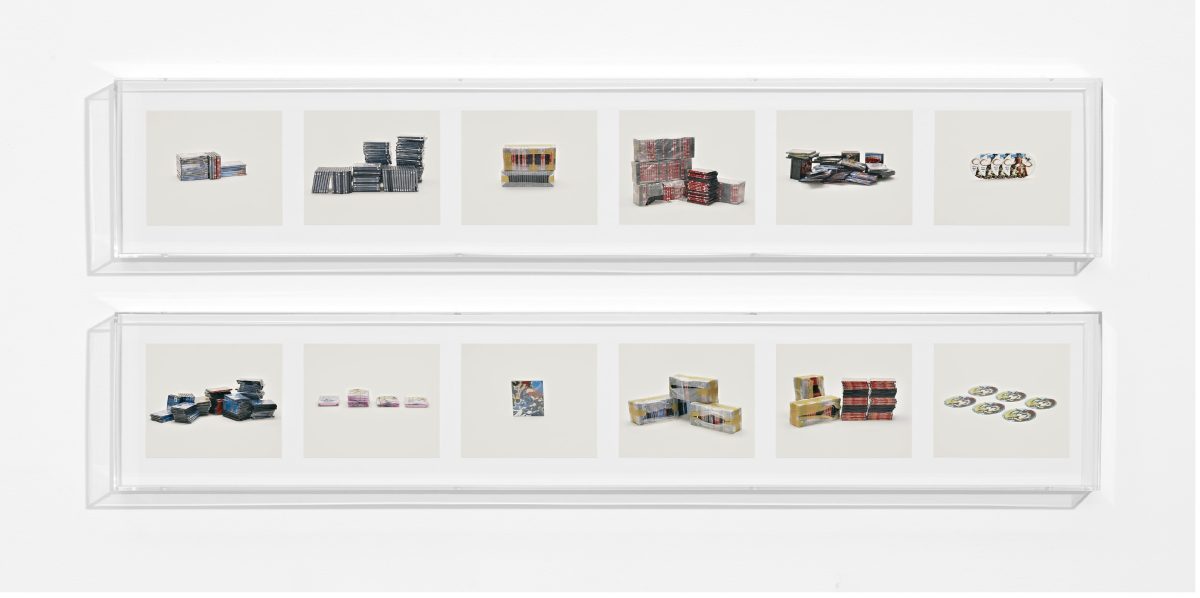
Taryn Simon
Movies, Animated (Pirated), 2010
12 archival inkjet prints in 2 Plexiglas boxes
Box 1, 2: 23.5 x 113 x 6.4 cm
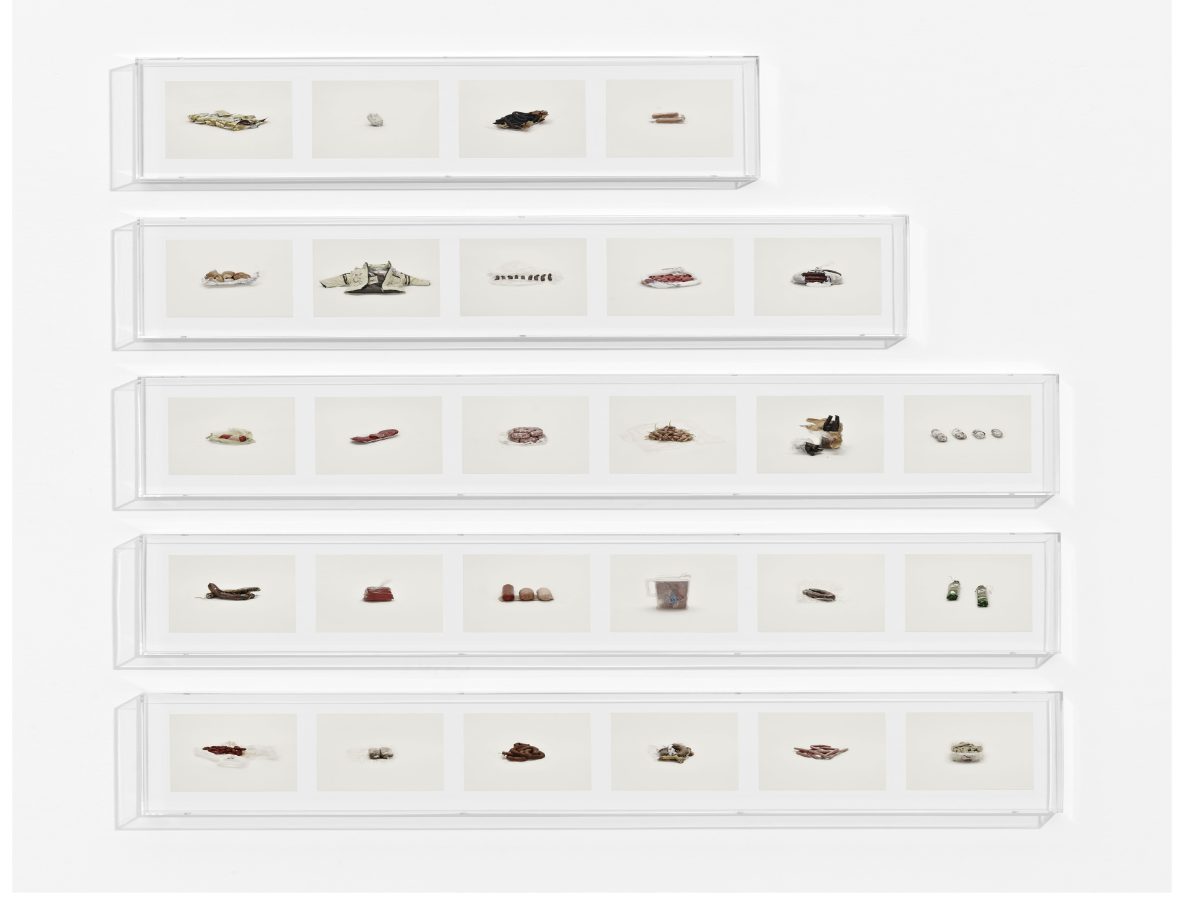
Taryn Simon
Sausages (Prohibited), 2010
27 archival inkjet prints in 5 Plexiglas boxes
Box 1: 23.5 x 76.2 x 6.4 cm; Box 2: 23.5 x 94.6 x 6.4 cm; Box 3, 4, 5: 23.5 x 113 x 6.4 cm
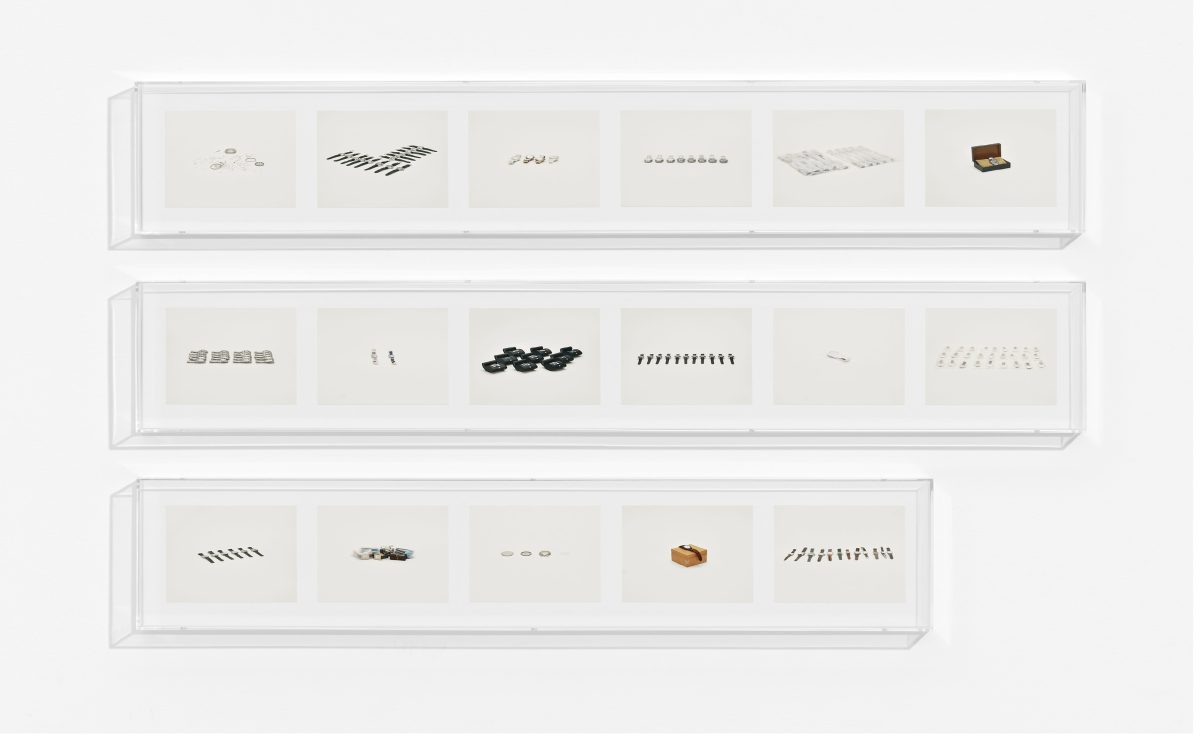
Taryn Simon
Watches (Counterfeit), 2010
17 archival inkjet prints in 3 Plexiglas boxes
Box 1, 2: 23.5 x 113 x 6.4 cm; Box 3: 23.5 x 94.7 x 6.4 cm











